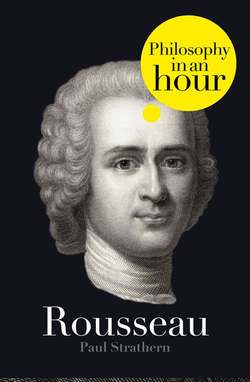Читать книгу Rousseau: Philosophy in an Hour - Paul Strathern - Страница 4
Introduction
ОглавлениеRousseau was a contemporary of such supreme philosophers as Kant and Hume, yet his popular influence far exceeded either. Kant and Hume may have been superior academic philosophers, but the sheer power of Rousseau’s ideas was un-equaled in his time. Indeed, Rousseau was certainly the most unintellectual of all the great philosophers. Again and again, feeling triumphs over intellectual argument in his works – which are both deeply stirring and deeply inconsistent. It is possible simultaneously to both love and hate Rousseau – for his work as well as for his effect. It was he who encouraged the introduction of both liberty and irrationality into the public domain.
The man and his ideas were one. Rousseau lived out his thought to the very utmost of his being. As a man he was both endearing and impossible. Here was a walking ego, a naked sensibility. For Rousseau, normal everyday life was often a torment – and he often made sure it was for those around him. But Europe was in need of such a figure. By the early years of the eighteenth century, when Rousseau was born, the scientific revolution and the Enlightenment were giving rise to great intellectual advances. Yet at the same time the European sensibility was suffering from a deep malaise. It had become bogged down in the intellectual and emotional restraints of classicism. In the midst of the new progress, many individuals were aware that they were beginning to lose touch with themselves, with who they really were. This was a novel feeling – which would remain part of our sensibility to this day. Rousseau was the first to confront this inarticulate self-awareness. It was he who insisted that we should seek out and experience our “true nature.”
